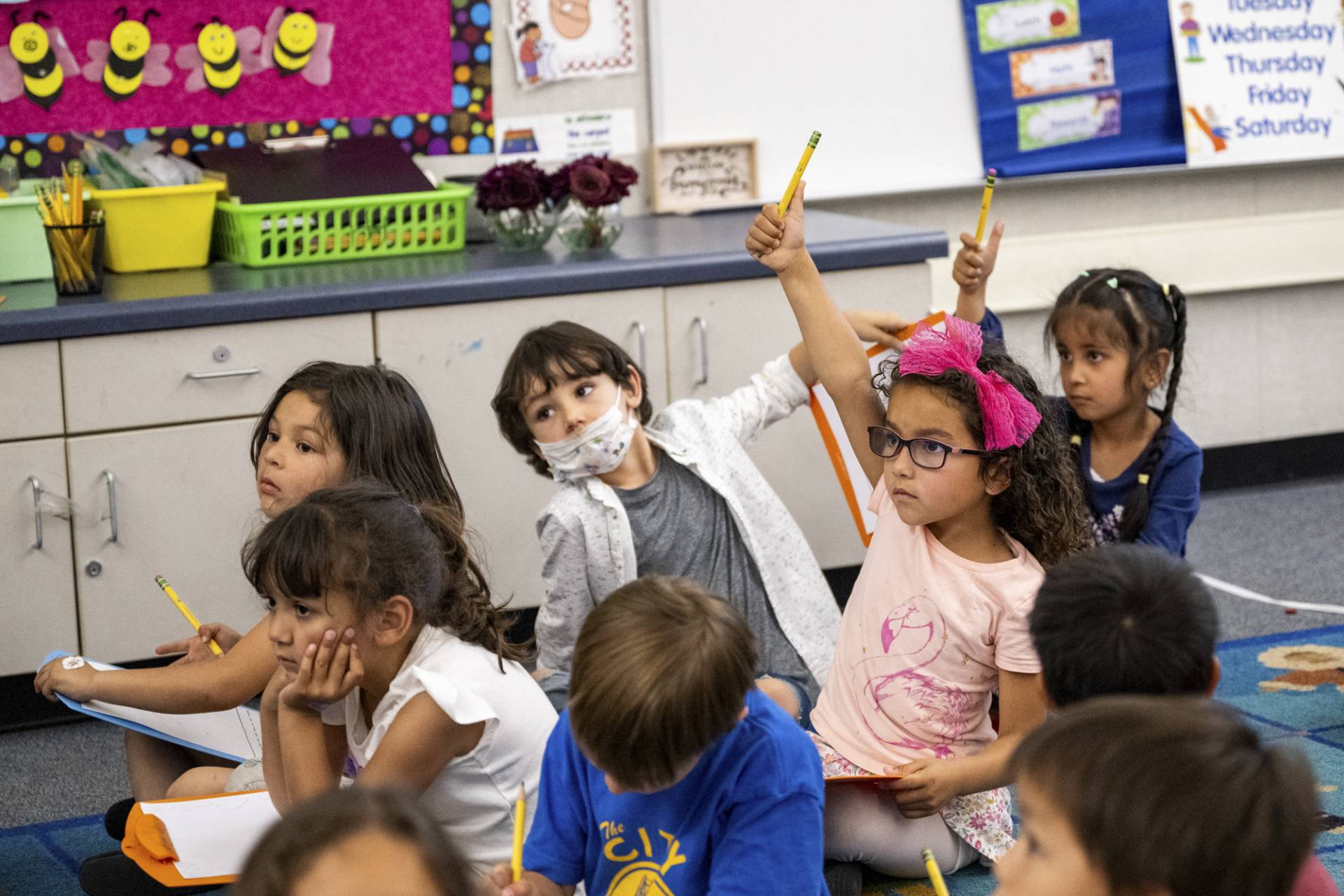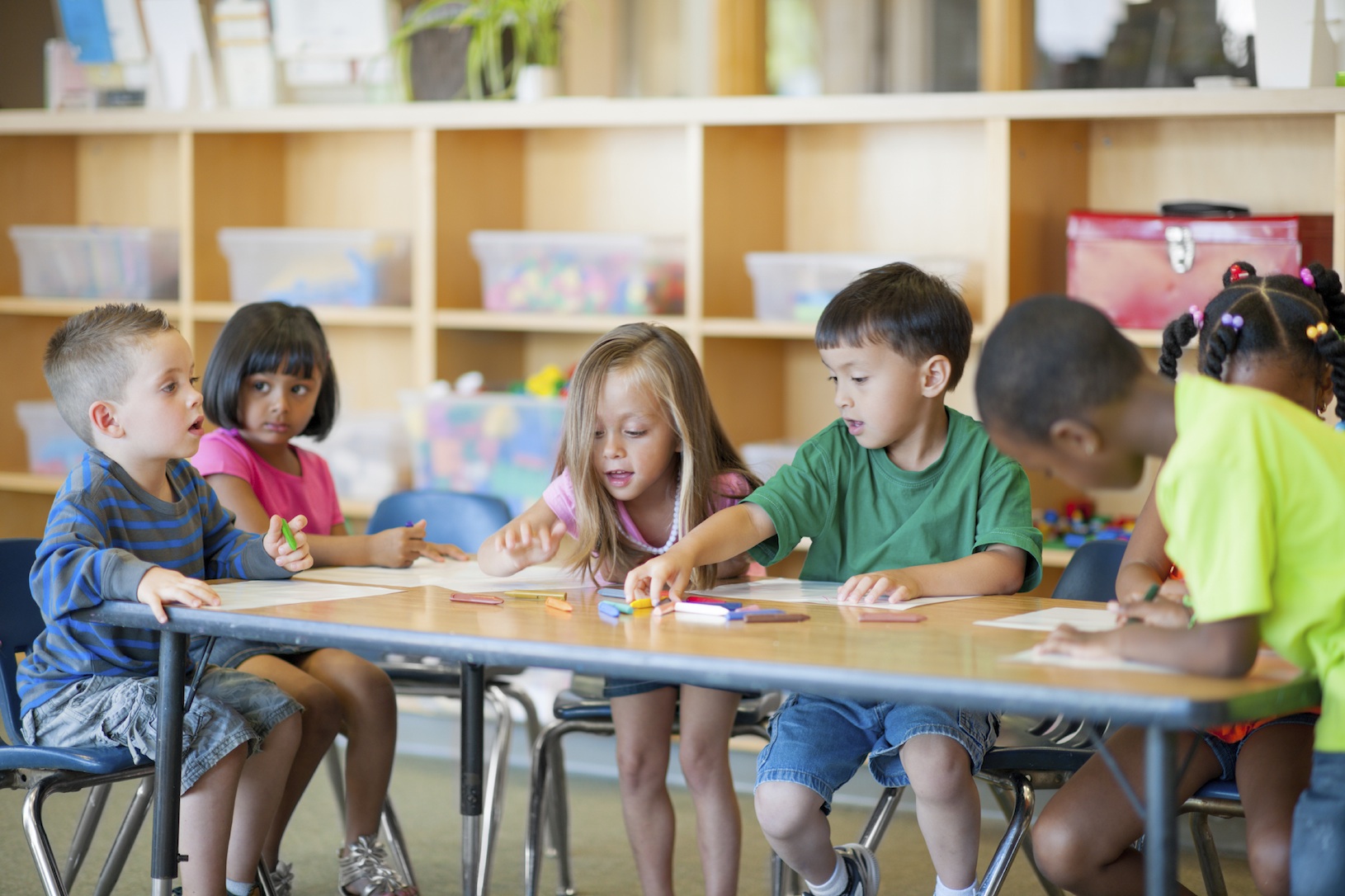Why science experiments inspire curiosity in Grade School classrooms
The Value of Interactive Tasks in Quality College Education And Learning
Interactive tasks play a crucial duty in elementary school education. They engage pupils and enhance finding out outcomes. Through group tasks and hands-on experiments, trainees experience the product in a sensible method. This approach accommodates varied discovering designs and promotes crucial skills. However, the benefits expand past academics. Discovering the much deeper impact of these activities reveals their relevance fit young students' futures. What improvements occur when trainees proactively get involved?
Enhancing Interaction Through Interactive Understanding
Standard training techniques have their qualities, interactive understanding considerably boosts trainee engagement in quality school education and learning. This technique motivates energetic engagement, permitting trainees to immerse themselves in the discovering process. By making use of team tasks, hands-on experiments, and technology-driven sources, instructors produce an environment where trainees really feel much more connected to the product.
Interactive discovering promotes cooperation amongst peers, cultivating communication abilities and synergy. It additionally provides to diverse learning styles, ensuring that visual, acoustic, and kinesthetic students can all grow. Pupils are much more most likely to keep details when they proactively participate, as opposed to passively getting knowledge.
This dynamic method not only makes discovering enjoyable yet likewise infuses a sense of possession in students concerning their educational journey. As they involve with the material, their inquisitiveness and inspiration to learn increase, laying a solid structure for future scholastic success.
Establishing Vital Thinking Abilities
Interactive knowing not only enhances engagement however also acts as a catalyst for establishing essential assuming skills in elementary school pupils. With tasks such as problem-based learning, arguments, and hands-on experiments, trainees are encouraged to examine info, examine various point of views, and formulate reasoned final thoughts. These interactive experiences require trainees to doubt presumptions, leading them to assume more deeply about different topics.

In addition, interactive tasks frequently present real-world circumstances that test pupils to use their expertise artistically. By navigating via these difficulties, they find out to recognize relevant details and make notified decisions. This procedure promotes not only individual important reasoning however likewise urges pupils to verbalize their believed processes, boosting their capability to connect effectively. Because of this, interactive knowing settings cultivate a generation of crucial thinkers that are much better prepared to deal with intricate issues in their future scholastic and professional endeavors.
Cultivating Collaboration Amongst Peers
Fostering cooperation amongst peers is crucial in grade school education and learning, as it improves synergy and interaction skills. Participating in group activities helps trainees develop trust fund and respect for one another, laying the groundwork for effective cooperation. Analytical together enables trainees to discover from each various other and develop a cumulative technique to challenges.
Team Effort and Interaction Abilities
Reliable teamwork and interaction skills are important elements of a successful quality school education and learning. Involving in interactive tasks urges students to work together, share concepts, and address problems with each other. Such experiences advertise the development of essential communication capabilities, permitting children to express their thoughts clearly and listen actively to others. Via team effort, trainees learn to value varied perspectives, cultivating a sense of community and shared responsibility. Structured team jobs, whether in academics or innovative jobs, enhance peer communications, teaching children exactly how to discuss functions and settle conflicts. These abilities not just contribute to a positive class setting yet likewise prepare students for future collaborative endeavors in higher education and the work environment. Generally, team effort and communication are foundational to alternative advancement in elementary school.
Structure Depend On and Regard
Structure trust fund and regard amongst peers functions as a foundation for effective partnership in elementary school settings. They are much more most likely to engage proactively in group tasks when pupils feel valued and appreciated by their schoolmates. Interactive activities, such as group jobs and cooperative video games, supply chances for students to gain from one another, cultivating a sense of neighborhood. This atmosphere urges open communication, permitting students to share their ideas and point of views without anxiety of judgment. As trust builds, trainees come to be more prepared to share duties and sustain each various other's knowing. Ultimately, cultivating an atmosphere of trust and regard enhances not only academic end results yet also social advancement, gearing up trainees with vital social abilities for their future endeavors.
Problem-Solving Together
Collaborative analytical involves students in essential reasoning and teamwork, vital abilities for their individual and scholastic development. When pupils interact to deal with obstacles, they discover to communicate effectively, regard varied viewpoints, and take advantage of each other's strengths. This process boosts their ability to assess troubles from various angles and establish imaginative solutions. Group tasks, such as science experiments or math difficulties, promote active engagement and cultivate a feeling of area. As trainees team up, they additionally construct social abilities, learning to jeopardize and negotiate, which are critical for future interactions. Ultimately, problem-solving with each other grows an encouraging knowing setting, equipping trainees to take ownership of their education and learning while preparing them for collaborative endeavors past the class.
Encouraging Creative Thinking and Innovation
Encouraging creative thinking and advancement in grade college education can be substantially enhanced through hands-on understanding experiences. These tasks allow students to engage directly with principles and materials, promoting creative reasoning. Furthermore, collaborative group jobs can boost varied ideas and remedies, further supporting an imaginative atmosphere.
Hands-On Discovering Knowledge
A wide range of hands-on knowing experiences significantly boosts creativity and advancement in grade college education. Involving students in practical activities allows them to use academic expertise in real-world contexts, promoting deeper understanding. By adjusting devices and materials, youngsters create essential analytical abilities and learn to think outside package. These experiences inspire interest and inspire pupils to explore their rate of interests additionally. In addition, hands-on tasks can connect different topics, linking science, art, and mathematics in significant means. This interdisciplinary approach motivates pupils to see links and believe creatively. Eventually, hands-on learning experiences nurture a generation of pioneers, outfitting them with the skills and confidence needed to deal with future difficulties and add to culture in unique means.
Collaborative Team Projects
Hands-on discovering experiences normally bring about the unification of collaborative team tasks, which play a vital role in fostering creative thinking and innovation in elementary school education. These projects encourage students to collaborate, sharing perspectives and ideas, which improves analytical abilities and vital reasoning. With partnership, pupils learn to connect properly from this source and regard varied viewpoints, essential skills for their future. Furthermore, group projects provide possibilities for pupils to experiment with various roles, increasing their flexibility and self-confidence. Participating in this cooperative environment allows them to discover their creativity, pushing the boundaries of typical understanding. Eventually, collaborative team jobs not only improve the educational experience yet additionally prepare pupils for real-world challenges that need teamwork and cutting-edge reasoning.
Structure Self-confidence and Independence
As pupils take part in interactive activities, they often find chances to construct confidence and freedom. These activities, whether they entail hands-on tasks, role-playing, or analytic jobs, encourage pupils to take effort and reveal their concepts freely. By taking part in such experiences, pupils learn to trust their abilities and make choices without relying entirely on support from peers or teachers.
Interactive activities foster a feeling of ownership over learning. When trainees deal with obstacles collaboratively or individually, they establish crucial assuming skills and durability. This process not only improves their understanding of the topic however additionally empowers them to take dangers in their learning trip.
As they navigate different interactive circumstances, students slowly lost their self-doubt, paving the way for raised self-confidence - Private School. Eventually, these tasks play an important duty in nurturing independent and positive learners, outfitted to face future academic and personal challenges
Producing a Favorable Class Atmosphere
While fostering a favorable classroom atmosphere is crucial for efficient learning, it requires deliberate initiative from teachers to develop a space where pupils really feel safe, respected, and involved. A favorable atmosphere encourages partnership, allowing trainees to share themselves without worry of judgment.
Educators can attain this by developing clear expectations, promoting mutual regard, and acknowledging specific payments. Integrating interactive tasks further boosts involvement, making finding out more satisfying and vibrant.
Furthermore, a caring environment supports social-emotional advancement, as trainees learn to browse partnerships and settle problems. Teachers play an essential duty in modeling favorable behavior and enhancing a culture of compassion and inclusivity.
Regularly Asked Inquiries

How Can Parents Support Interactive Knowing at Home?
Parents can support interactive knowing in your my response home by providing interesting products, motivating hands-on tasks, incorporating educational video games, cultivating discussions, and developing a nurturing environment that advertises interest and expedition in their youngsters's discovering experiences. (Private Grade School Peoria)
What Sorts Of Interactive Activities Are Many Efficient?
Hands-on jobs, joint games, role-playing circumstances, and educational technology applications are among the most efficient interactive tasks. These engage students, boost critical believing skills, and promote team effort, ultimately cultivating a deeper understanding of different topics.
Just How Do Interactive Tasks Accommodate Various Understanding Styles?
Interactive activities engage visual, acoustic, and kinesthetic students by incorporating diverse approaches. These tasks facilitate comprehending via hands-on experiences, collective conversations, and visual help, permitting pupils to take in details according to their preferred discovering design.
What Are the Expenses Related To Carrying Out Interactive Tasks?

Implementing interactive activities incurs costs such as materials, training for instructors, technology upgrades, and potential facility modifications. Budget restrictions can also affect the regularity and selection of tasks provided to trainees in instructional setups.
How Can Educators Examine the Influence of Interactive Learning?
Educators can Bonuses examine the influence of interactive knowing through observations, pupil feedback, efficiency metrics, and relative evaluation of test ratings prior to and after application, guaranteeing a detailed understanding of interaction and understanding retention enhancements.
Via tasks such as problem-based learning, debates, and hands-on experiments, students are motivated to assess information, assess various point of views, and develop reasoned conclusions. Interactive activities commonly present real-world situations that test pupils to use their knowledge creatively. Engaging in interactive activities urges pupils to team up, share concepts, and fix issues together. Interactive activities, such as team projects and cooperative video games, supply possibilities for students to learn from one an additional, cultivating a sense of neighborhood. As pupils involve in interactive activities, they commonly find opportunities to construct confidence and independence.